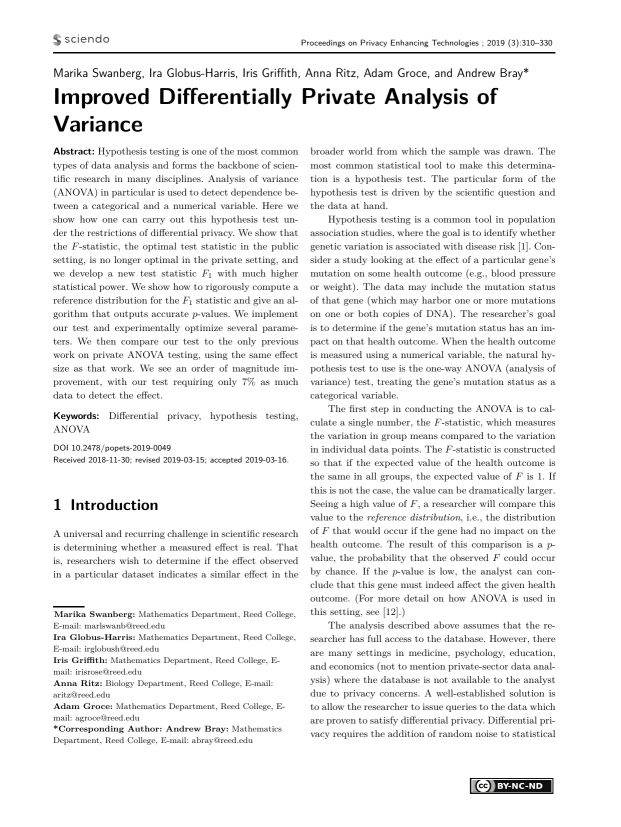Improved Differentially Private Analysis of Variance
Authors: Marika Swanberg (Mathematics Department, Reed College), Ira Globus-Harris (Mathematics Department, Reed College), Iris Griffith (Mathematics Department, Reed College), Anna Ritz (Biology Department, Reed College), Adam Groce (Mathematics Department, Reed College), Andrew Bray (Mathematics Department, Reed College)
Volume: 2019
Issue: 3
Pages: 310–330
DOI: https://doi.org/10.2478/popets-2019-0049
Abstract: Hypothesis testing is one of the most common types of data analysis and forms the backbone of scientific research in many disciplines. Analysis of variance (ANOVA) in particular is used to detect dependence between a categorical and a numerical variable. Here we show how one can carry out this hypothesis test under the restrictions of differential privacy. We show that the F -statistic, the optimal test statistic in the public setting, is no longer optimal in the private setting, and we develop a new test statistic F1 with much higher statistical power. We show how to rigorously compute a reference distribution for the F1 statistic and give an algorithm that outputs accurate p-values. We implement our test and experimentally optimize several parameters. We then compare our test to the only previous work on private ANOVA testing, using the same effect size as that work. We see an order of magnitude improvement, with our test requiring only 7% as much data to detect the effect.
Keywords: Differential privacy, hypothesis testing, ANOVA
Copyright in PoPETs articles are held by their authors. This article is published under a Creative Commons Attribution-NonCommercial-NoDerivs 3.0 license.

